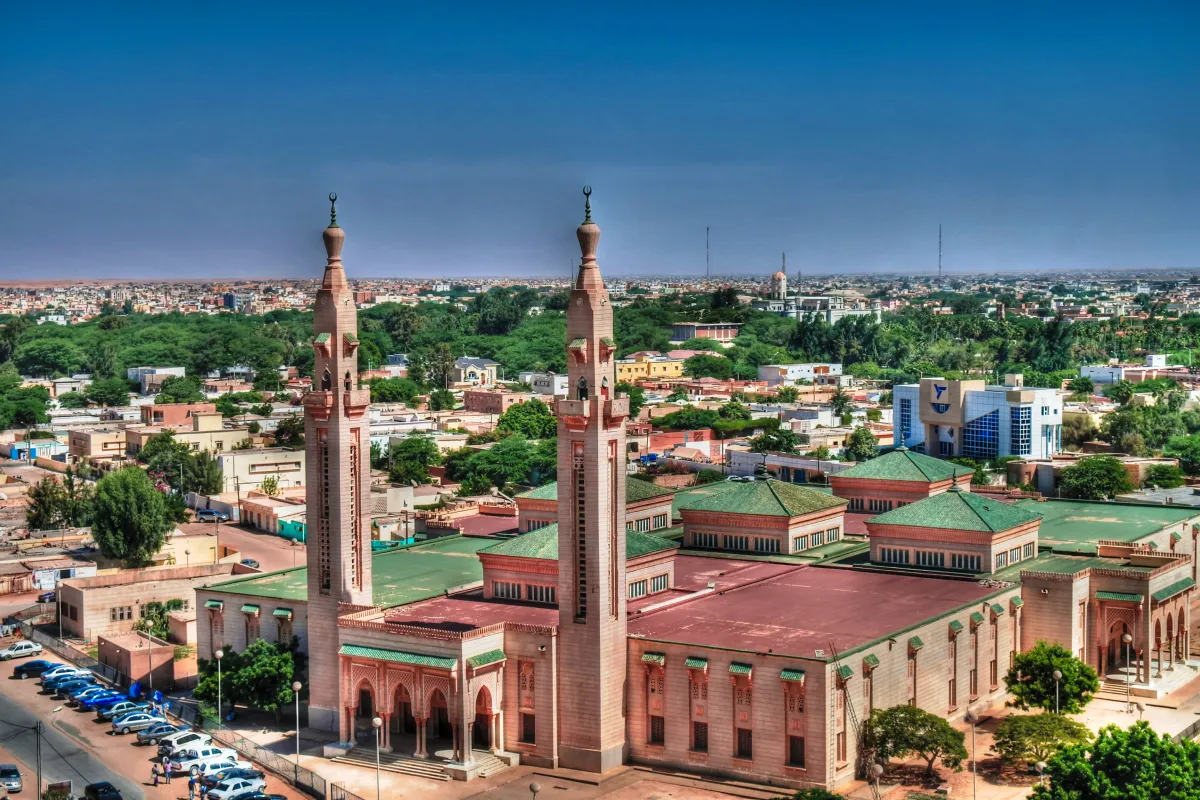
Countries
Employer of Record in Mauritania | Employment Law
We help you remain competitive for top talent and grow your global team quickly — no entity required

Mauritania Fast Facts
Download our guide to hiring in Mauritania.
Employment Law in Mauritania
Contracts
In Mauritania, employment contracts can be fixed-term or permanent, depending on the nature of the job and the agreement between the employer and employee. Permanent employment contracts must include benefits such as social security (CSS), paid leave, end-of-contract indemnity, and occupational injury coverage. Fixed-term employees are entitled to the same benefits as permanent employees after they have worked for three consecutive months.
Mauritania also has apprenticeship contracts, mainly for training, which are governed by the Labor Code (Ordinance 2017-005) and 2024 reforms. Employers with 25 or more workers are required to hire apprentices per national training directives.
Termination and notice periods
In Mauritania, labor regulations generally require fifteen days’ written notice for termination or salary in place of notice.
Employees with at least one year of service are entitled to severance pay of 1.5 days’ wages for every month of service. Employees who have completed five years of service and work for an employer with 10 or more employees are entitled to a gratuity payment of one month’s wages multiplied by the number of years of service. As your EOR (employer of record) in Mauritania, we can work with you to quickly handle the unforeseen event of an employee termination, providing legal guidance and a personalized process that ensures you stay out of labor court.
Probation periods
In Mauritania, probation periods are indirectly addressed in labor regulations, typically ranging from one to three months in the private sector, and up to six months for government roles.
Working hours and overtime
In Mauritania, the standard workweek is typically Monday through Friday, with eight hours per day, totaling 40 hours per week. Employees are prohibited from working for more than eight hours a day without appropriate compensation.
Any work beyond eight hours a day is considered overtime, and employees are entitled to an additional compensation of at least 50% over their regular hourly rate. For work performed on rest days (Saturdays) or legal holidays, the overtime pay rate is higher, as specified by the Labor Ordinance.
Taxes
In Mauritania, withholding tax is known as Retenue à la Source (RAS) and is deducted by employers before paying salaries to employees. Employers must deduct RAS from employee salaries based on applicable income tax slabs and submit it to the Direction Générale des Impôts.
Employers in Mauritania must adhere to various taxation and regulatory compliance requirements to operate legally and avoid penalties.
- Corporate tax: Domestic companies are taxed at 25% (standard rate) or 30% (for mining/oil firms under the Extractive Industries Code). Startups certified under the Mauritania Emerging Enterprises Program may qualify for tax exemptions.
- Value added tax (VAT): VAT applies to businesses with an annual turnover exceeding MRU 200,000,000. Employers must register, file quarterly returns, and pay VAT on applicable goods/services.
- Withholding tax (RAS): Employers must deduct RAS from employee salaries, vendor payments, and contractor fees. RAS must be deposited by the 20th of the following month, and quarterly returns must be filed. Late RAS deposits earn interest at 2% per month.
- Income tax returns (ITR): ITRs are filed annually based on company profits. Companies must also file annual financial statements with the Tax Directorate using Form DNIF-2025, and complete partner identification via Form KYC-Associés.
Employer payroll contributions
Mauritania’s social security system requires employer contributions that are dependent on the total number of employees, and these contributions cover pensions, medical care, disability insurance, and gratuity payments. In addition, workers’ compensation is financed by contributions from regional governments, employers, and employees.
Disclaimer: The information provided is for informational purposes only and does not constitute legal or professional advice. Safeguard Global disclaims any liability arising from reliance on this information. Certain content may be sourced from third parties and remains their intellectual property; all other content is owned by Safeguard Global and protected by applicable intellectual property laws. You are encouraged to seek professional or legal advice to address any issues, questions or matters arising from the information contained herein.

Contact Us
Book a demo today
We’d love to learn more about your needs and show you how we can help. Submit the form and we’ll be in touch to schedule a personalized demonstration of our platform and services.
Schedule an appointment
Fill out the form to speak to a rep about how we can help your organization.



















